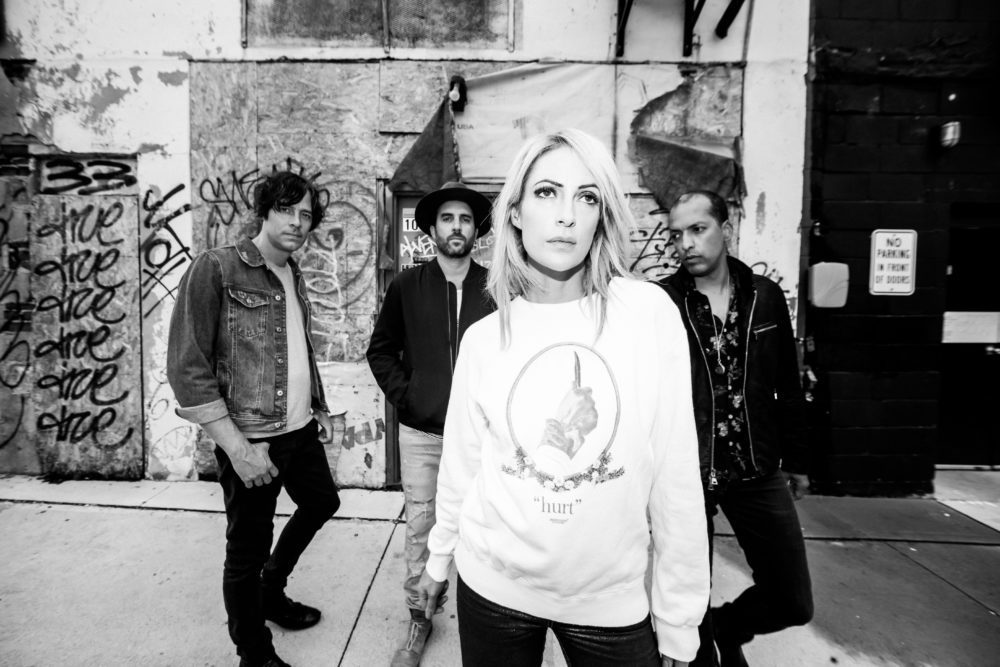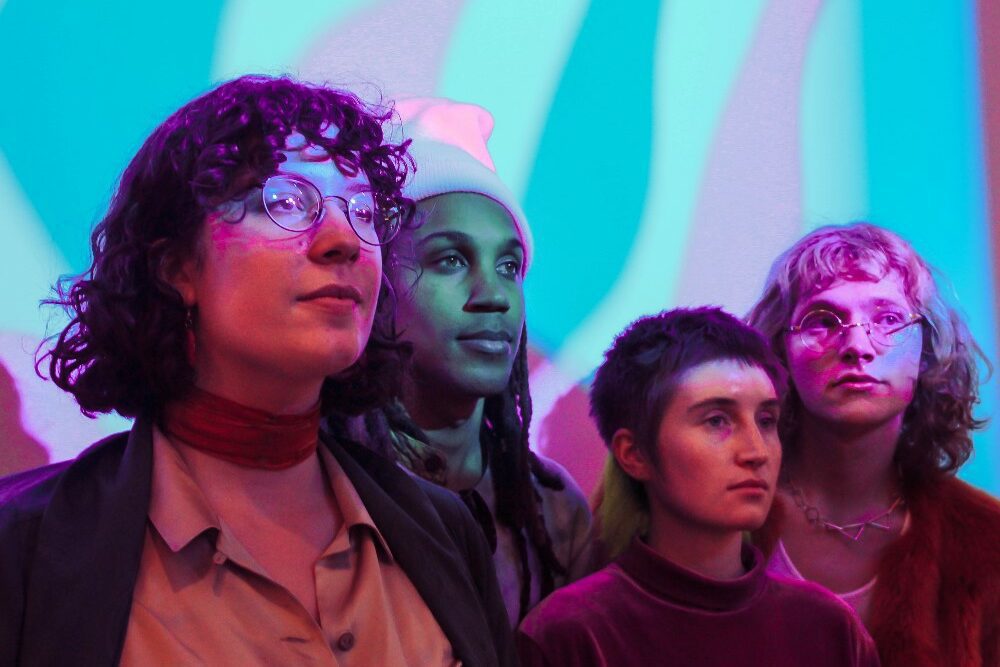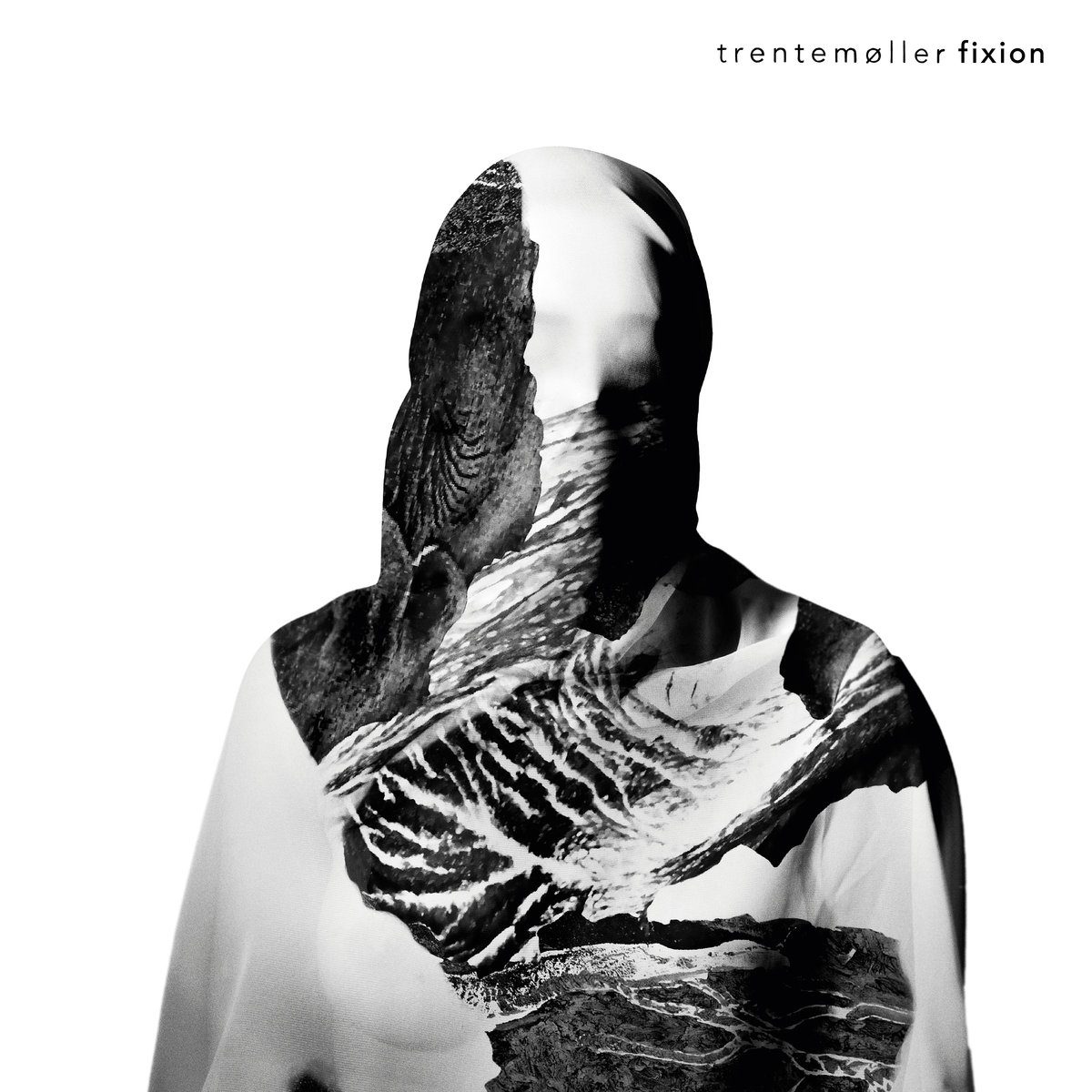Girls Rock Santa Barbara Interviews Emily Haines of Metric

This year, Girls Rock Santa Barbara has developed The Summer of Love Internship, its first ever paid internship for teen girls and gender-expansive youth, which allows the organization to continue to provide a safe, collaborative environment in which to encourage lifelong skills like positive peer bonding and self-confident resilience. The internship, which lasts six weeks and pays each intern $500, offers six exciting and arts-focused disciplines: Record Label, Recording Artist, Social Media, Journalism, Photography, and Podcasting. Audiofemme is pleased to publish the following article, written by Alexandria Stadlinger and Emelie Sanchez, two interns from the Journalism program.

Over the course of 20+ years, through seven studio albums and countless tours, Metric has effortlessly consolidated a faithful following and, thanks to their easy-to-love, synth-based indie rock, has established itself as one of the most appreciated Canadian bands of the century. In 1998, lead singer Emily Haines and guitarist James Shaw established Metric as a duo, adding bassist Joshua Winstead and drummer Joules Scott-Key two years later to make playing live shows easier. Today, they released a new acoustic version of “Empty” from 2005 album Live it Out, after previously doing the same for “Dark Saturday,” which originally appeared on their most recent album, 2018’s Art of Doubt.
Haines isn’t only Metric’s charismatic front-woman – she released two albums of solo work under the name Emily Haines & the Soft Skeleton, including 2017’s Choir of the Mind. She’s also known for her collaborations with numerous Canadian and international acts, particularly Broken Social Scene. With them, she’s collaborated on six albums since 2002, notably taking the lead on one of BSS’s most cherished songs, “Anthems For A Seventeen Year‐Old Girl,” with lyrics about getting older and entering a world where almost all sense of individualism and rebellion is lost. The tonal difference between Metric and Broken Social Scene shows the talent and musical range that she has.
About 18 years after the release of “Anthems For A Seventeen Year‐Old Girl,” we got the chance to interview Emily Haines and talked with her about COVID-19, her solo work, and some her thoughts on the music industry.
GRSB: How are things going with Metric during these strange times? Has quarantine put a strain on your band and the dynamic of it?
EH: We are doing our best to adapt, but yes, what a strange time! Josh is in New York and Joules is in San Francisco. They cannot enter Canada as the border with the US is still closed to all but essential travel. Obviously all the shows we had planned for this year have been canceled or postponed, so we’re focusing on writing and taking care of family.
GRSB: Are you aware of the huge following you have on TikTok with your song “Black Sheep”?
EH: Ha yes, I love that. Did you know this year is the 10th anniversary of Scott Pilgrim vs The World? I love that Brie Larson sang our song in that movie! “Black Sheep” is so fun to play live, that’s going to be a big moment when concerts are back and we kick in that one with a crowd in attendance.
GRSB: Other artists are using new tools to perform live during this time. Has the band considered doing live streams or something like that? Do you think that it will be challenging to go back to performing in front of an audience or with your band after quarantine?
EH: We did a couple of Instagram Live sessions near the beginning of lockdown. It was really comforting to be able to connect with our fans in some way, we took requests and did dedications. We also performed our song “Cascades” acoustic for a benefit concert in support of Doctors Without Borders, and played “Dark Saturday” for a virtual prom. It felt good to participate and do what we can but for me nothing will ever compare to the feeling of playing live for real.
GRSB: Who did you listen to when you were younger? Who do you listen to now? Has this influenced the music you make?
EH: I’ve always tried to keep an open mind about music. For me, it’s usually more about the feeling I get from the person behind the song than whatever so-called genre it is. My dad was a writer; people referred to him as a “jazz poet.” Throughout his life he worked as a lyricist with many incredible and strange musicians, so I was exposed early to some really interesting sounds and an appreciation for people who aren’t afraid to be true to themselves, even if it interferes with their mainstream accessibility. Right now I’ve got Tokimonsta, Michael Kiwanuka and Khruangbin on repeat. Tomorrow it might be Bill Callahan, Weyes Blood and Mo Kenney. Always listening!
GRSB: What do you guys do for fun while on tour?
EH: Well, over the years our idea of fun has changed. When we were starting out, we would play shows of like, 20 people, and after the show we would just hang out with everyone who was there and stay up late. Then as we became more established and our touring and press obligations increased our behavior changed accordingly. The first priority is always being your best for the show, which for a singer means not going out to loud bars and talking to people, but drinking tea and getting as much sleep as you can. I know it doesn’t sound very glamorous, but believe me, going back to a nice hotel and having a bubble bath after a show is one of the great pleasures of the road for me. The most fun thing in the world is playing music with my friends, so I construct my life around feeling fantastic doing it.
GRSB: How did you come up with the name Emily Haines and the Soft Skeleton?
EH: My father had just passed away around that time and I developed a minor obsession with medicine, biology and anatomy. I stumbled upon some description of the various types of skeletal systems that exist and was taken with the idea of soft-bodied animals having these fluid skeletons. I think in my emotional state I liked the idea of that kind of adaptability, and the idea that the musicians in my backing band, my backbone, would not be rigid but soft. Something like that. Grief is weird – a lot of the writing I did and a lot of the decisions I made at that time came out of seemingly nowhere. I love the name though, and while on tour in support of my most recent solo album Choir of the Mind, the band referred to themselves as soft skellies, which I also love.
GRSB: Do you have any new projects coming soon, either with Metric or by yourself?
EH: Writing, writing, always writing.
GRSB: You guys have been around for about 20 years. How have you seen the music industry change over time?
EH: So much has changed! We started our own label to release our music in 2007 and that was a great move until everything went to streaming, which was a really scary time because our main source of income went from being quite good to practically zero. But we have restructured and managed to thrive and embrace the time we live in because what’s the alternative? We are first and foremost a live band, so touring took a step up and we put more resources and energy into that. Then COVID happened. What happens next is anybody’s guess; I just know we will fight through and keep going forward, whatever it is. There’s no other option.
GRSB: If you can change anything about the industry, what would it be and why?
EH: Ha ha.. Well, you could have sent me just this question for our interview and I could have filled many pages just [responding to] that. The simplest way for me to respond is to say this: from the beginning of my career, I have looked for side roads and alternate paths to get me where I want to be, and as a result I have long standing professional relationships that I truly value and have maintained control and ownership of my work and my identity. This was the only way for me. I felt I had to side step the big machinery and build a position for myself from scratch. It certainly wasn’t easy, but from what I’ve seen, the other way isn’t that easy either and can erode your self-respect beyond repair.
GRSB: What do you enjoy most about being a musician? What do you hate most? Would you have said the same thing at the beginning of your career?
EH: It’s such an endlessly engaging profession! There are so many directions that being a musician can take you, so many instruments to play, sonics to explore, song structures and lyrics to study, people to learn from. It’s a lifelong craft. I guess the only thing I could say I hate is the way it gets judged and compartmentalized but even then, hate would be too strong a word, because the best thing about music is that you can incorporate your obstacles into your songs, write a hit and transform the struggle into the solution.
GRSB: If you weren’t a musician what would you be doing right now?
EH: Renovating a run-down roadside motel and turning it into a holiday paradise.
GRSB: How has the idea of setting goals changed for Metric over your career?
EH: I vividly remember a conversation I had with my manager right after we put out our first album, Old World Underground, Where Are You Now?, when he asked me, “What’s your five year plan?” and I was dumbfounded by even the idea of the question, let alone having an answer! Now I’m better at looking ahead, but I remain fundamentally the same. My favorite place to be is writing, recording or playing, and I put faith in my bandmates and my team on the business side to guide me along, wherever we might be headed and whatever comes next.
Follow Metric on Facebook for ongoing updates.




